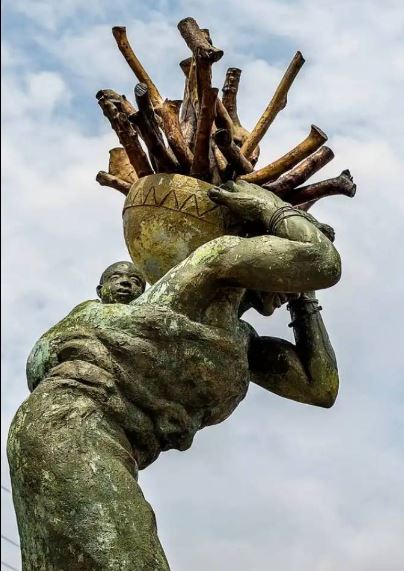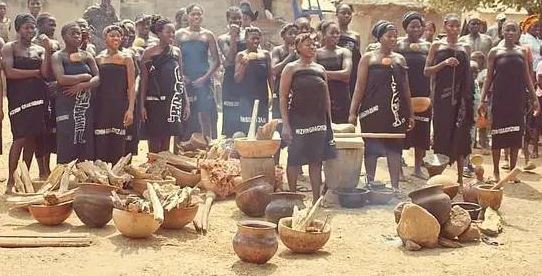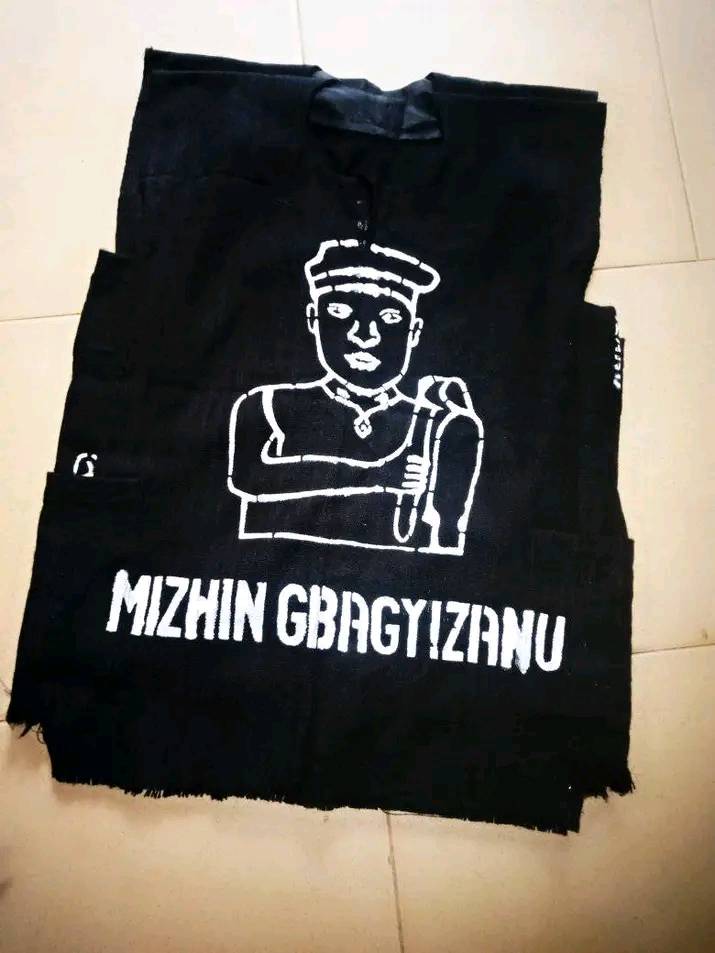Introduction
Nigeria, a multi-ethnic country is a home to the Gbagyi ethnic group with a population of about 5 million people. They are mostly found in Northern Nigeria in these states: Nasarawa, Niger, Kaduna, Kogi and Abuja (FCT).
Some theories posit a reason for the scattered settlements and migration of the Gbagyi people.
Historians believe the Gbagyi were displaced from their original settlements during the Fulani Jihad, while some local historians link migration with the need for farmland by the Gbagyis. Members of this ethnic group speak two dialects. While speakers of the dialects were loosely called Gwari by both the Hausa Fulani and Europeans during pre-colonial Nigeria which they normally frown at, they prefer to be known as Gbagyi/Gbari. The Gbagyi language is part of the Kwa sub-division of the Niger-Congo language family, however, some researchers such as Kay Williamson put the language in the Benue-Congo family. The people speak two dialects that are sometimes called Gbari (Gwari yamma) and Gbagyi dialects.
Historically, the Gbagyi/Gbari, practice a patriarchal kinship system. The lowest tier of authority found in the extended family compound is usually led by the oldest male. As common amongst ethnic groups in Central Nigeria, the compound typically consists of small huts and rectangular buildings. Settlements can be large and small in locations where farming is the dominant occupation; the settlements tend to be small so that enough land is available for farming. Being a patriarchal community, the Esu/Osu (king) is the highest tier of authority in a Gbagyi/Gbari settlement and he is assisted by a group of elders who are charged with the responsibility of ensuring peace in the land.
Predominantly farmers who farm yams, maize, millet and groundnuts, the Gbagyi people are also hunters but deeply skilled in producing traditional arts and craft products such as pottery, mortar and pestle as well as farming equipment like cutlass, hoes amongst others. As skilled craftsmen, they are good at mixing clay to produce decorative household products such as pots.
The Gbagyi’s hold strongly that the head is sacred and should not be used for load carrying, hence, they use their shoulders to carry loads. Gbagyi were the largest among the ethnic groups that inhabited the land proposed for development when Abuja (Federal Capital Territory) was chosen as Nigeria’s federal capital. The result of the relocation was the removal of people from their ancestral homes and spiritual symbols such as Zuma rock. However, many displaced families were given housing, but some lives in transit and settlements camp up till this day.
The Gbagyi people are known to be peace-loving, transparent and accommodating people. Northerners are fond of saying in Hausa language muyi shi Gwari Gwari, “let’s do it like the Gbagyi” or “in the Gbagyi way”. According to Tanko Chigudu, the Gbagyi people have emerged as a unique breed in Nigeria: their culture shows how much they have come to terms with the universe. The Gbagyi people practices Islam, Christianity and their own traditional religion. Traditionally, some Gbagyi believe in a god called Shekwoi (one who was there before their ancestors), they also devote themselves to appeasing deities of the god such as Maigiro., an average Gbagyi believes in reincarnation.
Here are some facts about Gbagyi/Gbari People.
Ancient Origins: The Gbagyi people are believed to have originated from the Kwararafa kingdom, which was a powerful empire that existed in the 14th century. The Kwararafa kingdom was located in the present-day Taraba State, Nigeria.
Migration: The Gbagyi people migrated from the Kwararafa kingdom to their present location in the Federal Capital Territory (FCT), Nasarawa State, Niger State, Kogi State and Kaduna State. This migration is believed to have occurred in the 16th century.
Settlement: The Gbagyi people settled in the Abuja area, which is now the Federal Capital Territory (FCT). They established several settlements, including the present-day towns of Gwagwalada, Kuje, and Abaji. Other states Gbagyi are found are Nasarawa, Niger, Kaduna and Kogi. It is believed that Gbagyi are the second most populated language in Northern Nigeria.

Language: The Gbagyi people speak the Gbagyi language, which is a member of the Nupoid language family. The people speak two dialects that are sometimes called Gbari (Gwari yamma) and Gbagyi dialects. All are refers as Gbagyi or Gbari.
Population: The Gbagyi people have a population of approximately 5 million people, spread across Nasarawa State, Niger State, Kaduna State, Kogi State and the Federal Capital Territory (FCT), Abuja.
Traditional Occupation: The Gbagyi people are traditionally farmers, hunters, and gatherers. They are known for their expertise in cultivating crops such as yams, cassava, and guinea corn.
Traditional Leadership: The Gbagyi people have a traditional leadership system called Esu as their paramount ruler. The Esu is responsible for leading the Gbagyi people and making important decisions on their behalf.
Here are some of the traditional leaders found among the Gbagyi people:
Traditional Leaders
1. Esu: The Esu is the paramount ruler of the Gbagyi people. He is the highest authority in the land and is responsible for making important decisions that affect the entire community.
2. Etsu: The Etsu is a high-ranking traditional leader who assists the Esu in his duties. He is responsible for overseeing the administration of the community and ensuring that the laws and customs of the land are upheld.
3. Sarkin: The Sarkin is a traditional leader who is responsible for a specific district or community within the Gbagyi kingdom. He is responsible for collecting taxes, resolving disputes, and maintaining law and order in his area of jurisdiction.
4. Maiyaki: The Maiyaki is a traditional leader who is responsible for a specific ward or village within the Gbagyi kingdom. He is responsible for collecting taxes, resolving disputes, and maintaining law and order in his area of jurisdiction.
5. Dakachi: The Dakachi is a traditional leader who serves as a liaison between the Esu and the people. He is responsible for communicating the Esu’s decisions to the people and for providing feedback to the Esu on the needs and concerns of the community.
It is believed that the overall traditional leader of the Gbagyi tribe is the Esu Karu. The Esu Karu is the paramount ruler of the Gbagyi people and is responsible for leading the entire Gbagyi kingdom. The Esu Karu is a highly respected and revered figure among the Gbagyi people.
Religion
In their traditional religion, some Gbayi believe in a God called Shekwoi, the one who was there before their ancestors, but they also devote themselves to appeasing deities of gods such as Maigiro.
Indigenously, their main religion is Knunu, which they believe protects them from the evil that exist in the community. They worship the Knunu by offering fowl and beer as a sacrifice to a special tree found deep in the forest.
With westernisation, the Gbagyi people practice a mix of Christianity and Islamic religions, but they still maintain many of their traditional beliefs and practices. Christian became more prominent among the people which was introduced to the people by the Sudan Interior Mission, also known locally as Evangelical Church of Africa, now Ecumenical Church Winning All (ECWA) while Islam was introduced during Fulani jihad whom they found it easy to embrace Islam because some practices of Islam such as polygamy were also practised in their indigenous religion.
Gbagyi called God Shekwo, that’s in Christendom.
Here are some of the deities worshiped by the Gbagyi people:
Major Deities:
1. Eggoni: The supreme god and creator of the universe.
2. Tswanya: The god of fertility, agriculture, and prosperity.
3. Kakanda: The god of war, protection, and strength.
4. Gado: The god of wisdom, knowledge, and divination.
Minor Deities:
1. Tsafi: The god of the forest and wildlife.
2. Kwakwa: The god of the river and fishing.
3. Dodo: The god of the mountain and mining.
4. Gwagwa: The god of the wind and weather.
These deities play a significant role in the spiritual lives of the Gbagyi people, and their worship is an integral part of Gbagyi culture and tradition. But many have become Christian or Islam with few still practicing Traditional Belief. That’s why most Gbagyi people that accepted Christianity, they accepted without turning back because of the liberty they have in Christ.
Festivals
The Gbagyi people celebrate several festivals throughout the year, including the Gbagyi Cultural Festival, which showcases their traditional music, dance, and art. But one of the most notable ones is the ZhiBaje Ritual Festival. This festival is an essential aspect of Gbagyi folk life and celebrates the quintessential humanity of the Gbagyi people.
During the festival, the Gbagyi people come together to showcase their rich cultural heritage through music, dance, and traditional performances. The festival is also an opportunity for the Gbagyi people to promote social harmony, love, and human dignity.
Another significant festival celebrated by the Gbagyi people is the Gbagyi New Year Festival, which marks the beginning of the New Year in the Gbagyi calendar. The festival is celebrated with fanfare, including traditional dances, music, and cultural performances. Though there’s no specific place of gathering, it is believed that each Gbagyi sons and daughters celebrates the festival where they are.
Other cultural festival celebrated by the Gbagyi people where they gather together is the Karu Gbagyi Cultural Festival, which is held annually in Abuja. The festival showcases the rich cultural heritage of the Gbagyi people and promotes unity and social harmony among the community.
Challenges
The Gbagyi people face several challenges, including poverty, lack of access to education and healthcare, and land disputes with other ethnic groups.
Occupation
The Gbagyi people are mostly farmers although they are also good in wood fetching, pottery, and blacksmith. The Gbagyi people were also well known for their visual art most especially pottery. Other arts practised by the Gwagyi people are sculpture, iron smelting, domestic craft, and Smelting. The Gbagyi people wear tie and dye clothing known as Ajeside, made from local cotton and traditional woven and dyed which is part of their occupation.
Gbagyi Food
The Gwari people enjoy eating a meal known as Wyizhe. It is made from Guinean corn which is also used to make a special drink known as Zhepwo. The Gwari people also enjoy drinking a soup known as Knadolo made from locust beans.

Marriages
Marriage among the people of Gbagyi is soaked in deep tradition. When a man announces his interest in a woman, he would have to serve seven years in the bride’s father’s farm, labouring and supplying grains and other produce to the bride’s house in order for her to be well fed. Nowadays, the groom simply pays the bride’s price instead of serving seven years.
Gbagyi people before now believed that their families come from the mother side. That’s why they don’t give their daughter out i.e to other tribe. If they do, they man will be given a land to stay at the country home of the wife. In case of anything like death or any eventuality, they children of their daughter become part of their family. In short, they derived their family from the mother side unlike other tribe that derived from the side of the father’s family. Some thanks modernization for changing the narrative of how marriage is done now in Gbagyi land as any lady is allowed to marry anyone that they love without tribal barrier.
But now, things are changing that a Gbagyi lady will marry another tribe and went with the person to his place. That’s some aspect of the culture of Gbagyi that is fading out.
Marriage in the Gbagyi tribe, like in many other African cultures, is a significant social institution that involves not only the union of two individuals but also the union of their families and communities. Here are some interesting aspects of marriage in the Gbagyi tribe:
Types of Marriage:
1. Arranged Marriage: In traditional Gbagyi society, marriages were often arranged by the families of the bride and groom. This practice is still common today, although it is not as widespread as it once was.
2. Love Marriage: With the influence of modernization and Western culture, love marriages have become more common among the Gbagyi people.
3. Polygamous Marriage: Polygamy is practiced among the Gbagyi people, although it is not as common as it once was.
Marriage Rites:
1. Betrothal: The marriage process begins with a betrothal ceremony, where the groom’s family presents gifts to the bride’s family.
2. Bride Price: The groom’s family is expected to pay a bride price to the bride’s family. This can include cash, livestock, and other gifts.
3. Marriage Ceremony: The marriage ceremony typically involves a traditional wedding ceremony, where the bride and groom are dressed in traditional attire and exchange vows.
4. Post-Marriage Rites: After the marriage ceremony, the bride and groom are expected to spend some time together, during which they are expected to consummate the marriage.
Roles and Responsibilities:
1. Husband’s Role: The husband is expected to provide for his wife and children, as well as to protect and care for them.
2. Wife’s Role: The wife is expected to take care of the home and children, as well as to support her husband in his endeavors.
3. Family Responsibilities: Both the husband and wife are expected to participate in family decision-making and to contribute to the well-being of their extended family.
Challenges Facing Gbagyi Marriages:
1. Cultural Changes: The influence of modernization and Western culture has led to changes in traditional Gbagyi marriage practices, which can sometimes lead to conflicts between traditional and modern values.
2. Economic Pressures: Economic pressures, such as poverty and unemployment, can put a strain on Gbagyi marriages.
3. Education and Empowerment: The education and empowerment of women have led to changes in the traditional roles and responsibilities of husbands and wives, which can sometimes lead to conflicts and challenges in Gbagyi marriages.
The Gbagyi people have a unique and fascinating marriage rite, which is an important part of their cultural heritage. Here are some key aspects of the Gbagyi marriage rite:
Pre-Marriage Rites
1. Courtship: The groom-to-be will typically visit the bride’s family and express his interest in marrying their daughter.
2. Introduction: The groom’s family will formally introduce themselves to the bride’s family, and the marriage proposal will be discussed.
3. Bride Price Negotiation: The groom’s family will negotiate the bride price with the bride’s family. The bride price is a payment made to the bride’s family as a symbol of respect and appreciation.
Marriage Rite
1. Traditional Ceremony: The marriage ceremony will take place at the bride’s family compound, and will be attended by family members, friends, and community leaders.
2. Payment of Bride Price: The groom will pay the agreed-upon bride price to the bride’s family.
3. Exchange of Vows: The bride and groom will exchange vows, promising to love and cherish each other.
4. Blessing: The marriage will be blessed by a traditional leader or elder.
Post-Marriage Rites
1. Reception: After the marriage ceremony, the bride and groom will be received by their families and friends, and will be treated to food, drink, and music.
2. Honeymoon: The bride and groom will spend some time together, often in a secluded location, to get to know each other better.
3. Integration: The bride will be integrated into the groom’s family, and will be expected to participate in family activities and responsibilities.
Unique Aspects
1. Bride Service: In some Gbagyi communities, the bride is expected to perform certain tasks or services for her husband’s family, such as cooking or cleaning.
2. Marriage by Proxy: In some cases, a Gbagyi man may marry a woman by proxy, where a representative stands in for the groom during the marriage ceremony.
3. Levirate Marriage: In some Gbagyi communities, a widow may be expected to marry her late husband’s brother or other relative, as a way of maintaining family ties and inheritance.
In conclusion, marriage in the Gbagyi tribe is a complex and multifaceted institution that involves not only the union of two individuals but also the union of their families and communities. While traditional Gbagyi marriage practices are still observed, modernization and cultural changes have led to challenges and conflicts in Gbagyi marriages so also is the same in some tribes.
These are just some of the key aspects of the Gbagyi marriage rite. It’s worth noting that marriage customs can vary across different Gbagyi communities, and may have evolved over time.
Now that modernization has set-in in many African cultures and the coming of Christianity and Islam, what has changes in your tribal culture? Christianity has created freedom for many African cultures which has ease the way things are been done. You need to visit Gbagyi land and see for yourself their rich culture. Culture is life. Hope this post is helpful? Keep visiting our Website for this and many more.

